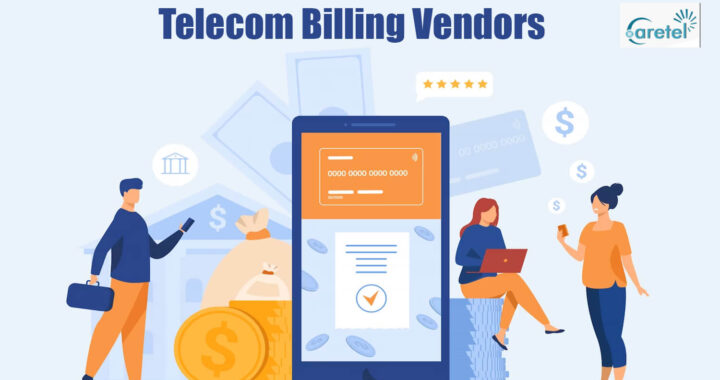An essential component of every business is effective communication. The hardest process is choosing a telecom provider, though. There are many alternatives accessible, and you don’t want to be forced to choose one that you can’t trust. Communications with both your clientele and your staff require the use of telecom services. Some telecom billing vendors further provide functionality, such as cloud storage.
It might take some work to choose the finest telecom vendor for your business. Choose one that will satisfy your demands both today and in the future. How your business determines which provider is the best is the question.
You must be able to tell them apart before you can begin the choosing process. Based on their primary competencies, telecom companies are divided into three groups. You may better comprehend their capabilities and choose the best one by being aware of the distinctions.
Regular Providers
Conventional providers usually referred to as carriers, are service providers with direct access to the internet and all extensive networks required to supply voice and data services. They don’t use anyone else’s network capacity as a loan. They are responsible for maintaining the network and internet infrastructure.
Several of these carriers are well-known brands, such as AT&T, Verizon, and CenturyLink. These are full-service providers who handle all of a business’s communications requirements. As they often host, bill, and streamline a company’s cellphone services, digital and cable television alternatives, and broadband internet access through just one vendor, they are regarded as the largest telecom billing vendors.
True traditional providers never require IP transit agreements from other providers since they have such extensive networks.
You can acquire effective services by working with a typical, full-service telecom provider. This strategy also gives you the choice to bundle, which may help you save money.
Broadband Providers
A lot of people are familiar with broadband providers. The names Cox, Spectrum, and Comcast, to mention a few, are probably familiar to you. These vendors, who are also known as carriers, vary in a few respects from conventional telecom providers.
Beyond internet technology, conventional carriers provide a variety of other technologies. Telecom billing solutions offer full service and may supply a variety of solutions in one bundle, as was already discussed. Providers of broadband concentrate only on providing internet access. They provide a variety of online services and have positioned internet connectivity as their core competency. Broadband companies have the benefit of concentrating just on providing high-speed, dependable internet, unlike traditional providers that have ventured into new forms of connection like fibre-optic internet. They are committed to offering top-notch speeds and service to U.S. businesses, so they can suggest the best option for your company.
Providers of unified communications as a service (UCaaS)
The third kind of telecom provider doesn’t focus on connection; rather, they sell voice communications. The voice side of telecom is the opposite half of the telecom from the data side. Because these companies do not provide services for residential houses, you may only be familiar with the firm names 88, Ring Central, and Vonage if you are more aware of the corporate technology sector. These companies offer cloud-based communications services or UCaaS. They manage the infrastructure that enables them to provide companies with cloud-based voice.
The benefit of using a UCaaS vendor for your company’s voice needs over a traditional supplier is that these businesses are voice specialists. To solve the many speech technology revisions, they have spent decades developing their solutions. These providers have mastered the cloud-based voice service, which can now be used with anything from traditional phone lines to voice over internet protocol (VoIP), mobile technologies, and cloud communications.
How to Choose a Reputable Telecom Provider
The enormous variety of telecom billing systems vendors available makes it difficult for most organisations to select one that will fulfil their unique demands. Be open-minded and consider all of your possibilities while looking for a new or additional telecom vendor. You must exercise due research if you want the greatest, most optimal service. While selecting a telecom vendor, keep the following factors in mind:
Telecom Vendor Fees
The majority of telecom providers impose non-recurring fees (NRFs) at the beginning of the contract. These costs are often associated with the price of equipment, installation, and other requirements for setting up a telecom system.
Pay close attention to your recurrent monthly fees (MRCs). Your monthly invoice may include variable expenses since some services may be charged based on consumption per minute. The majority of the time, they are long-distance, international, incoming calls from toll-free lines, etc.
You will be better able to comprehend a vendor’s billing procedure if you are aware of all the expenses of Telecom billing software that have been incurred by your business. The base rate itself is frequently not fixed; only the discount is. Even if your consumption maintains the same, your monthly payment will go up if the base rate goes up.
Decide which telecom services you require
Identify the services your business commonly utilises, then inquire about any discounts or special offers that providers might be prepared to offer. To get a good picture of how much you’ll be paying, get a combined quotation. Many little quotations add up to a sizable cost, which many people are unaware of until they receive their first invoice.
Better Telecom Quotes
Look for companies who are providing oss software telecom with more recent technologies for better telecom quotes. Older solutions are less effective and therefore more expensive.
Your dedication to being proactive is the key to securing a good bargain. Ask explicit questions, look for precise responses, and demand additional possibilities. Avoid letting your business become entangled in a contract without a clear way out.
Avoid overcommitting and ensure that all contracts with your telecom vendor have coterminous expiration dates. Work on reducing your costs and pay any amount that exceeds the ceiling amount rather than reaching the maximum number to receive your money’s worth. Using this strategy, you’ll save more money over time.

